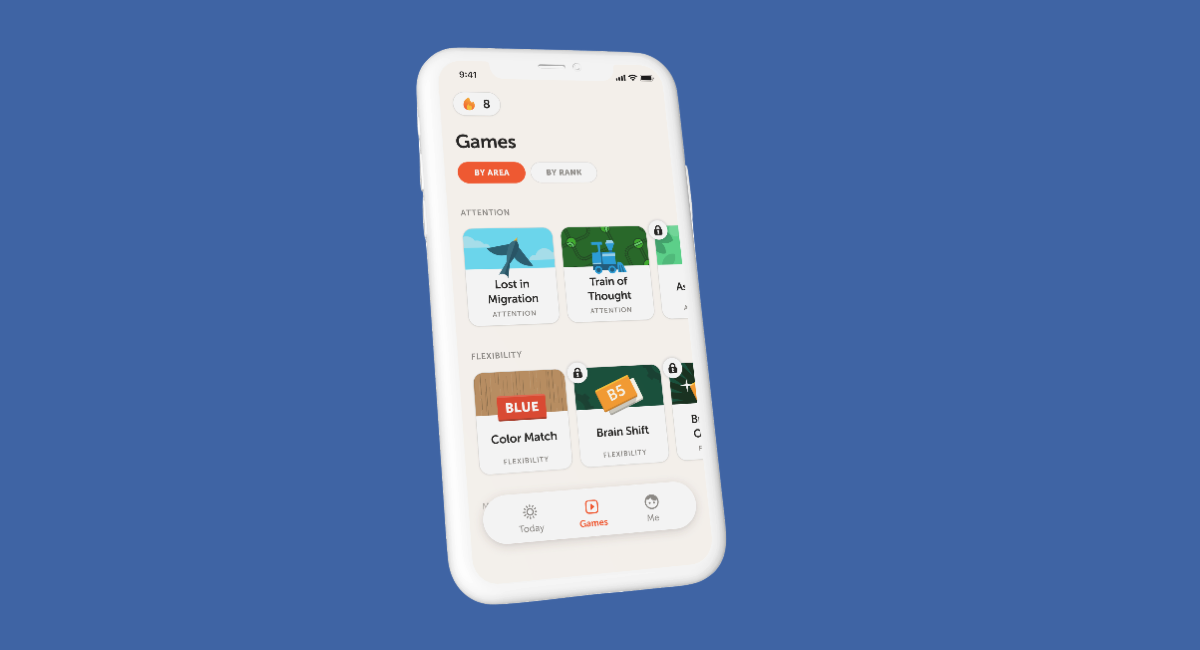
A new study published in the Nature journal of Mental Health Research shows powerful real-world evidence for the efficacy of app-based cognitive training games for improving management of adult ADHD.
The study looked at the app Lumosity from Lumos Labs, which offers “brain-training games” to the general public. Data was pulled from participants in the United States and Canada who used the app between 2007 and 2020 and who opted in to take either a neuropsychological test battery (NCPT) or a scale of attention and mood test (BAMS-7) at least twice and completed surveys reporting diagnosed mental health conditions.
The NCPT includes tests of numerical problem-solving, speed of processing and memory, visual memory, and reasoning, while the BAMS-7 asks participants to rate how often they lose track of details, misplace items, or lose concentration, as well as asking questions about mood. Neither assessment corresponded closely with the games being tested — that is, the games were not simply gameified practice for the assessments.
All in all, 143,806 participants met the criteria for inclusion, 19,717 of whom reported being diagnosed with ADHD at some point in their lifetime. Researchers ran a number of analyses on this self-reported ADHD population and found it was demographically aligned with the general population, though larger relative to the full sample, suggesting that individuals with ADHD might be more likely to use Lumosity or to opt into the assessments.
Within the ADHD cohort, researchers compared the change in scores from the first assessment to the second in users who played a lot of games (400 to 2,000) with those who played few to no games (25 or less). They found that those who played more games had a significantly larger improvement in scores than those who played fewer, except on the mood portions of the BAMS-7, and this pattern held when intermediate users were included as well.
The study is interesting for a few reasons. One, it provides real-world evidence of digital health efficacy, looking at a total group of more than 140,000 and an ADHD cohort of nearly 20,000. These are significantly larger sample sizes than clinical trials can typically field.
Two, it provides data on the efficacy of a digital intervention for adult ADHD. Much of the research that has been done so far on ADHD digital therapeutics by companies like Akili has focused on paediatric ADHD, which, as researchers note, may not be transferable because of differences in neuroplasticity.
Though the study does not include a sham group, by comparing dose effects rather than simply comparing users and non-users it provides strong evidence against a placebo effect.
Lumosity’s brain training games are not marketed as digital therapeutics and don’t purport to treat mental health conditions like ADHD. However, Lumos Labs is in the process of developing digital therapeutics and digital biomarkers based on data collected from its games, according to the company’s website.










